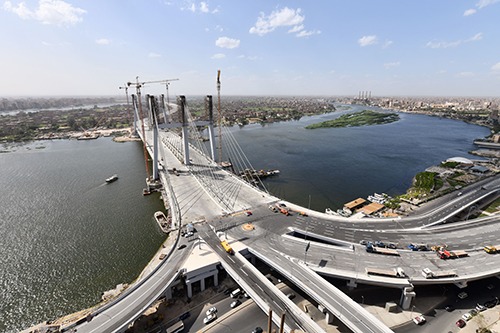Egypt’s economy has maintained its liquidity and strong potentials, shrugging off any negative impacts of the Covid-19 pandemic on investments and employment.
The economy grew by 7.7 per cent of GDP in the fourth quarter (Q4) of the fiscal year (FY) 2020/21, compared to -1.7 per cent on the same period the previous year, a Cabinet statement said last week.
Egypt’s fiscal year begins on July 1. The economy expanded by 3.3 per cent of GDP in FY 2020/21, according to the statement.
The sustained GDP growth over the past two years despite the repercussions of the coronavirus reflects strength and solidity of the North African country’s economy.
It also reflects the Moustafa Madbouly-led government’s efforts to mitigate the negative impacts of the pandemic.
The sustained GDP growth has been a direct result of infrastructure megaprojects, which have pumped liquidity into the economy as a whole and boosted employability, especially among the young people.
For the past seven years, the government has increased investment allocations in the state budget to boost economic growth.
It has embarked on an expansionary policy to put the economy back on track through extra funds to finance infrastructure projects, thus creating more jobs and pushing the economic wheel ahead.
$400b for infrastructure development
President Abdel Fattah El Sisi has unveiled that the state spent roughly $400 billion to develop the nation’s infrastructure over the past seven years.
The infrastructure projects complemented the country’s comprehensive economic reforms, which were launched in November 2016 after signing a $12 loan agreement with the International Monetary Fund (IMF).
The infrastructure projects covered a wide range of sectors such as roads, bridges, power, renewable energy, fuel, transport, housing, water and wastewater.
For instance, the state has added 14,400 MW, or around 50 per cent of the nation’s electric power, via three stations in the Administrative Capital, Borolos and Beni Suef at a cost of six billion euros.
Government investments totalled LE568.4 billion ($36.4 billion) over the past three years, according to Cabinet data.
Roughly 43 per cent of these government investments were spent in FY 2020/21. The investments have been pumped into about 4,000 development projects worth LE680 billion in various sectors, according to Cabinet data.
Better employability
GDP growth has banked on infrastructure projects, enhancing the employability conditions across the country. The financial policy has soothed the pandemic’s negative impacts on the domestic market.
Unemployment fell to 7.4 per cent in 2021 Q4, down from 7.5 per cent in the previous quarter, data from the state-run Central Agency for Public Mobilisation and Statistics (CAPMAS) showed.
The nation’s labour force rose to 29.65 million in 2021 Q1, up from 29.38 million in 2021 Q3, according to CAPMAS data.
A 7.7 per cent GDP growth in FY 2020/21 Q4 may raise growth forecasts for 2022 given steady increases in production factors with a falling unemployment rate.
Such forecasts will inevitably add much more momentum to the government’s economic reforms in the coming years.






Discussion about this post